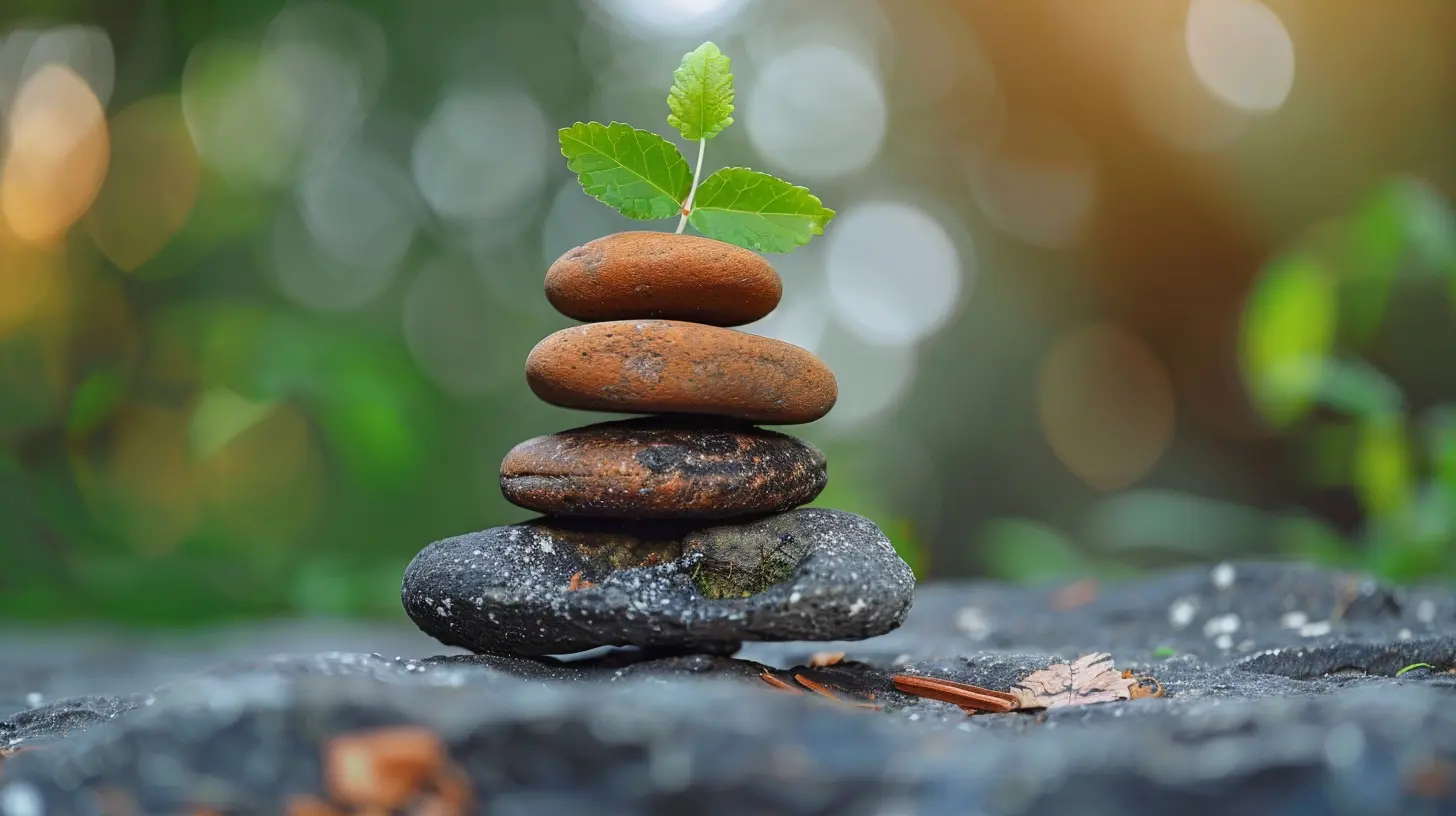How Meditation Practices Can Help Build Emotional Resilience
25 August 2025
Let’s face it—life throws curveballs. Whether it’s a tough breakup, a stressful job, or just one of those days where nothing goes right, emotional resilience can feel like a superpower you just don’t have. But here’s the good news: you can build it. And guess what? Meditation might be the unexpected hero you didn’t know you needed.
In this article, we’re going to talk real about how meditation—yes, sitting quietly with your thoughts—can transform how you handle stress, drama, and emotional chaos. So grab a comfy seat, maybe a cup of tea, and let’s unpack how this ancient practice can toughen up your inner world.
What Is Emotional Resilience Anyway?
Before we dive into meditation, let’s break down the buzzword: emotional resilience.Think of emotional resilience as your inner bounce-back muscle. It's your ability to handle emotional punches, recover from setbacks, and keep moving forward without spiraling into negativity or burnout. It’s not about avoiding pain or pretending everything’s fine. It’s about facing life’s storms head-on and saying, “Okay, this sucks—but I’ve got this.”
Some people seem naturally resilient, but truth bomb—it’s a skill. And just like hitting the gym builds physical strength, meditation builds mental and emotional strength.
So... How Does Meditation Fit Into All of This?
Let’s be clear: meditation isn’t about becoming some serene monk who never gets phased. It’s about training your mind. When practiced regularly, meditation helps you pause, reflect, and respond instead of reacting emotionally. It’s like installing a “mental buffer” between you and your stress triggers.And here’s where the magic happens: meditation activates parts of your brain responsible for emotional regulation, self-awareness, and compassion. That means you're not just chilling on a cushion—you’re literally rewiring your brain for calm and clarity.
1. Meditation Teaches You to Sit With Discomfort
One of the core benefits of meditation is learning to sit with discomfort—and not run from it.Think about this: how often do we distract ourselves to avoid feeling emotions? Whether it’s scrolling, snacking, or binge-watching, we’re masters of avoidance.
With meditation, you're doing the total opposite. You're sitting still, breathing, and noticing everything that comes up—joy, sadness, anxiety, restlessness. You learn that emotions aren’t the enemy; they’re messengers. And you build resilience by facing them without freaking out.
Imagine emotional discomfort like a wave. Meditation teaches you to surf it, not sink under it.
2. Builds Awareness = Better Choices
When you're overwhelmed and emotional, it's easy to react on impulse. Maybe you snap at someone. Maybe you shut down. Maybe you do something you regret.Meditation helps you hit that internal pause button.
By training your awareness through mindfulness meditation, you start noticing what’s going on inside your head before you act. You catch the spiral of anxious thoughts or the rise of anger. And here's the kicker—you start choosing how to respond instead of being hijacked by your emotions.
That’s emotional resilience in a nutshell: staying grounded even when your world shakes.
3. Reduces Stress Hormones
Let’s talk science for a second. When you're stressed out, your body releases cortisol—that lovely hormone that makes you feel on edge, scattered, and exhausted.Studies show that consistent meditation actually lowers cortisol levels. It helps calm the “fight or flight” response and activates your parasympathetic nervous system—aka the “rest and digest” mode. Your heart rate slows, your breathing deepens, and your body chills out.
When you’re not in chronic stress mode, your emotional resilience goes way up. You’re less likely to snap, more likely to breathe, and way better at thinking clearly.
4. Strengthens Emotional Regulation
Let’s get a bit nerdy again.Brain imaging studies have found that meditation strengthens the prefrontal cortex (the thinking/logical part of your brain) and shrinks the amygdala (the fear/emotion center). That means you're training your brain to calm down faster and think more rationally—even when things get heated.
Think of it like upgrading your internal software. With meditation, your emotional operating system becomes smarter and more agile.
You’ll still feel anger, fear, sadness—of course. But you won’t become those emotions. They pass through without taking control.
5. Encourages Self-Compassion
Let me ask you something: do you ever beat yourself up for not handling emotions well?We all do it. But constant self-criticism packs a heavy emotional toll.
Meditation—especially loving-kindness or compassion meditation—helps flip the script. You start treating yourself like a friend, not a punching bag. You realize it’s okay to struggle. You’re human.
And guess what? Self-compassion is one of the biggest predictors of emotional resilience. When you’ve got your own back, you’re way more capable of weathering emotional storms.
6. Helps Build a Regular Routine That Grounds You
Often, life feels chaotic because we don’t have anchors—things that ground us.Meditation becomes one of those anchors. Even spending just 10 minutes a day sitting quietly is like pressing the “reset” button on your mind. It reconnects you, re-centers you, and reminds you that no matter what’s going on out there, you’ve got a calm center inside.
That daily habit builds momentum. You’re not just reacting to life; you’re intentionally shaping how you meet it.
7. Develops Greater Emotional Agility
Meditation teaches you that emotions are temporary. They rise, they peak, they fall—just like waves.When you see this process again and again during meditation, something clicks: you stop believing every thought and feeling is permanent or catastrophic. You develop emotional agility—the ability to stay flexible, adjust, and keep moving.
This is resilience gold. You're no longer paralyzed by tough emotions. You navigate them. You bend without breaking.
8. Increases Your Capacity for Joy and Gratitude
Resilience isn’t only about managing pain—it’s also about savoring joy.Regular meditation doesn’t just reduce stress; it boosts your well-being. You become more present, more open, and more grateful. And when you’re anchored in gratitude, it’s harder for life’s setbacks to knock you off your feet.
Joy becomes a resource you draw from. It fills your emotional tank so you’re not running on empty when hard times hit.
Simple Ways To Start Meditating For Emotional Resilience
Okay, so you’re convinced. But you're thinking, “I don’t know how to meditate” or “I tried once and my brain went wild.”Totally normal.
Here’s how to ease into it:
Start small
→ 5 minutes is enough to begin. Seriously. Set a timer, sit quietly, focus on your breath.Use an app
→ Headspace, Calm, Insight Timer — these make it easy and guided.Try mindfulness
→ Simply notice what’s happening right now. The feeling of your feet on the floor. Your breath. The sounds around you.Try loving-kindness meditation
→ Silently repeat phrases like “May I be kind to myself” or “May I handle this moment with ease.”Make it a habit
→ Link it to something you already do—like brushing your teeth or your morning coffee.Remember, it won’t be perfect. Your mind will wander. That’s not failure—that’s the practice. Each time you come back to your breath, you’re strengthening that resilience muscle.
What Happens When You Stick With It
Here’s what’s possible when you make meditation a regular part of your life:- You're less reactive.
- You bounce back from setbacks faster.
- You feel more centered, even when things go chaotic.
- You treat yourself with more kindness.
- You begin to respond to life, instead of just reacting.
- You become emotionally strong, stable, and steady—even when life is not.
Isn’t that the kind of resilience we all need?
Final Thoughts
Meditation isn’t a magic bullet. It won’t make the world less chaotic or your emotions disappear. But it will help you meet life with more grace, grit, and groundedness.Emotional resilience isn’t about never falling—it’s about getting back up, every time, with more wisdom and less fear. Meditation helps you build that kind of inner strength quietly, daily, and powerfully.
Start small. Show up. Be consistent. And watch how your emotional resilience grows—not in giant leaps, but in quiet, steady waves.
all images in this post were generated using AI tools
Category:
ResilienceAuthor:

Paulina Sanders
Discussion
rate this article
1 comments
Ulysses Martinez
Mindfulness enhances resilience through regulation.
September 21, 2025 at 4:30 AM

Paulina Sanders
Absolutely! Mindfulness practices foster emotional regulation, which is key to building resilience by helping individuals respond more effectively to stress and challenges.


